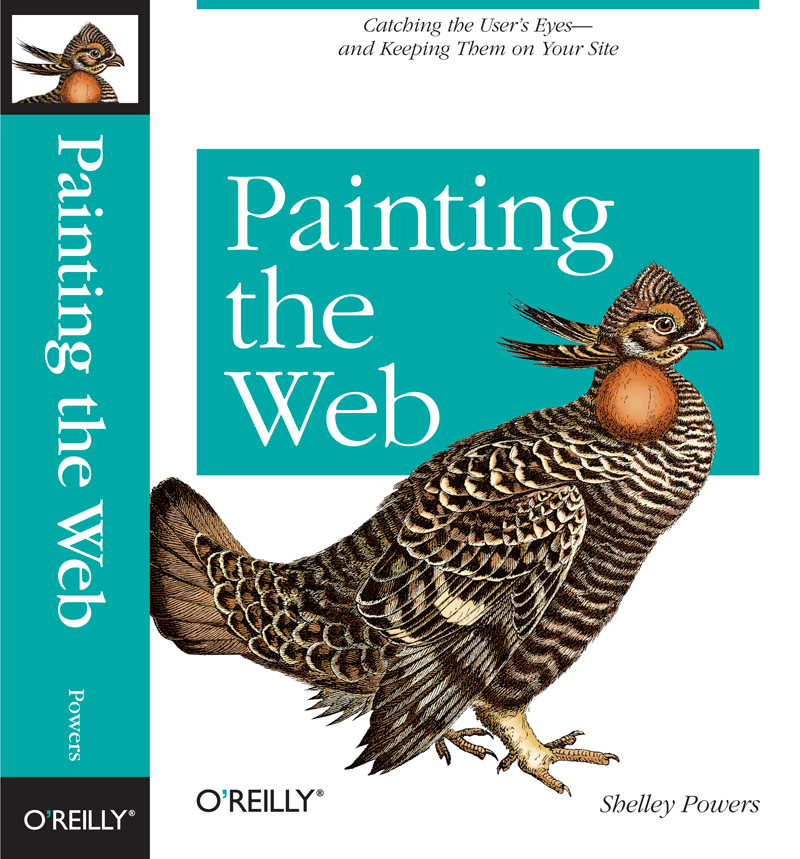Recovered from the Wayback Machine.
Now, we have wonderful tools to make it easy to put writing or other content online. We can think of a topic, create a writing about it, and publish it—all in five or less minutes. We’ve also come to expect that whatever is published is read as quickly. We’ve moved from multi-page writings, to a single page, to a few paragraphs, to 140 characters or less. Though there is something to be said for brevity, and it takes a true master to create a mental image that can stand alone in 140 characters or less, there still is a place for longer writings. We don’t have to be in a continuous state of noise; a race to create and to consume.
That’s a quote from my first writing at Just Shelley. It seems serendipitous, then, that Nick Carr’s article in the New Atlantic, Is Google Making Us Stupid? is published the same day, because in this multi-page article, Nick questions the internet’s impact on our ability to read just such longer works.
For me, as for others, the Net is becoming a universal medium, the conduit for most of the information that flows through my eyes and ears and into my mind. The advantages of having immediate access to such an incredibly rich store of information are many, and they’ve been widely described and duly applauded. “The perfect recall of silicon memory,” Wired’s Clive Thompson has written, “can be an enormous boon to thinking.” But that boon comes at a price. As the media theorist Marshall McLuhan pointed out in the 1960s, media are not just passive channels of information. They supply the stuff of thought, but they also shape the process of thought. And what the Net seems to be doing is chipping away my capacity for concentration and contemplation. My mind now expects to take in information the way the Net distributes it: in a swiftly moving stream of particles. Once I was a scuba diver in the sea of words. Now I zip along the surface like a guy on a Jet Ski.
I’m not the only one. When I mention my troubles with reading to friends and acquaintances—literary types, most of them—many say they’re having similar experiences. The more they use the Web, the more they have to fight to stay focused on long pieces of writing.
Nick wonders if our brains are being subtly altered by the internet. That perhaps we are truly losing the ability to focus, to stay in one place, to even sit and read a book. I find the idea that the internet is actually altering how our brains work unlikely, or at least, no more likely than any other activity. He uses Nietzsche’s use of a typewriter as anecdotal evidence of the medium’s impact on the message, writing, Under the sway of the machine, writes the German media scholar Friedrich A. Kittler, Nietzsche’s prose “changed from arguments to aphorisms, from thoughts to puns, from rhetoric to telegram style.” Yet Kittler and now Nick both ignore the elephant in the corner: Nietzsche was a very ill man, becoming increasingly more ill as he got older, and more mad as time progressed. I find it more likely his illness impacted on his writing then the fact that he now used a typewriter over pen and paper.
What I think is happening—without any basis in research other than my own intuition and observation—to Nick and others, especially those who weblog, Twitter, IM and so on, is that we’ve adapted to a set of stimuli that rewards both brevity of focus, as well as speed of response, over long-term study and thoughtful response. There is “pleasure” associated with receiving both acclaim and attention, and those who receive both excel at the 10 minute read, the five minute response. We’re not adapting so much as we’re mimicking what we see to be “successful” behavior in others so that we may, also, partake of the same “pleasure”. This is compounded by an artificial sense of urgency that has been generated in this environment that we have to read more, and then more, in order to “be informed”—informed in this context being the breadth of knowledge, rather than the depth.
In other words, we become less like the computers we use, as Nick presumes, and more like the rats in the lab box, pushing the lever that gives a sexual stimulus over the lever that gives food, because the short term gratification outweighs the longer term need.
Regardless of cause, physical or behavioral, the end result is the same: we run the risk of losing an essential part of ourselves. As Nick eloquently puts it:
Perhaps those who dismiss critics of the Internet as Luddites or nostalgists will be proved correct, and from our hyperactive, data-stoked minds will spring a golden age of intellectual discovery and universal wisdom. Then again, the Net isn’t the alphabet, and although it may replace the printing press, it produces something altogether different. The kind of deep reading that a sequence of printed pages promotes is valuable not just for the knowledge we acquire from the author’s words but for the intellectual vibrations those words set off within our own minds. In the quiet spaces opened up by the sustained, undistracted reading of a book, or by any other act of contemplation, for that matter, we make our own associations, draw our own inferences and analogies, foster our own ideas. Deep reading, as Maryanne Wolf argues, is indistinguishable from deep thinking.
If we lose those quiet spaces, or fill them up with “content,” we will sacrifice something important not only in our selves but in our culture.
There is much to think of from Nick’s writing. Much to absorb and more to write about later. In the meantime, do take the time to read all of the article.
(Also discussed, briefly, at CNet. I’d be curious how many people who wrote comments have actually read the entire work, because as far as I can see, CNet isn’t linking directly to Nick’s article.)








